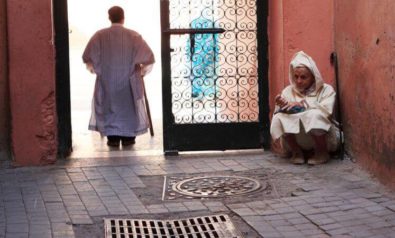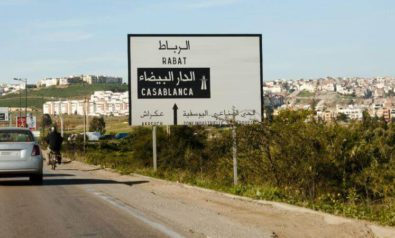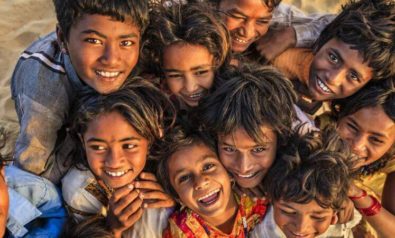If we fail to address poverty today, the more likely it is to increase tomorrow.
Poverty is one of the most pressing issues of our time, and the whole world suffers from it. The term can be defined as the state of one who lacks a certain amount of money or material possessions.
With the growth of inequality worldwide, developing countries are not the only ones affected by the phenomenon. In fact, poverty grows every year, and some believe it can never be eradicated.
According to DoSomething.org, a movement with 5.5 million young people who want to make a positive change, nearly half the world’s population “live on less than $2.50 a day.” Considering there are over 7 billion people on the planet, that’s more than 3 billion who live in poverty. The website adds that over “1.3 billion live in extreme poverty — less than $1.25 a day.”
This is alarming.
So, what causes poverty, and what are its consequences?
According to the Borgen Project, a US-based nonprofit that seeks to address poverty and hunger worldwide, there are three key issues.
First, history plays an important role. Most of the poorest countries in the world were former colonies of European powers. These nations in the so-called Third World sent slaves to faraway lands and had their territories seized by colonizers—from which resources had been stolen.
Second, war and political instability are often the case in countries marred by poverty. Simply put: “Both of these factors have often been tied to histories of colonialism, but whatever the causes of war and political upheaval, it is clear that safety, stability and security are essential for subsistence and, beyond that, economic prosperity and growth.”
In other words, without peace in the land and security for all, no amount of wealth or education will benefit the everyday person. And that helps exacerbate poverty for a country’s most vulnerable people.
Third national debt is a huge problem for former colonies. As per the Borgen Project, “poor countries carry significant debt loads due to loans from wealthier nations and international financial institutions.” And when a country gets a development loan, they are often required to “open their markets to outside business and investors.” In the end, small business owners take a beating at the market place due to large conglomerates eating away at the proverbial pie.
THEN WHAT HAPPENS?
Poverty has its fair share of consequences on society, including malnutrition, health concerns and education.
Malnutrition: Often, people who live in poverty—both relative and extreme—rarely have access to nutritious foods. And even if they have access to such foods, they are unlikely to possess enough purchasing power to buy them, not to mention the risk of inflation driving up the price of basic essentials like bread.
Health: Poverty and disease often go hand-in-hand. People who live in poverty usually “lack the resources to maintain a healthy living environment. They are almost always lacking in nutritious foods, which decreases their bodies’ ability to fight off diseases.”
Education: Children who grow up in poverty often do not attend school from a young age. While school is free in countries like Morocco, getting an education does cost money. For example, school uniforms and supplies such as books are often out reach for many people. In the end, many kids drop out of school and work with their families.
The Borgen Project sums it up: “Whatever the reason, there is a clear correlation between families living in poverty and their lack of education. Without the ability to attend school, many people go through life illiterate.” As a result, people run the risk of an endless cycle of poverty when generations of a family go through the same thing: being born into a poor household, dropping out of school at an early age, having children and living a life in poverty all over again.
Indeed, while each country differs in their experience with poverty, there are similarities around the world.
UNDERSTANDING POVERTY IN MOROCCO
In Morocco, the majority of those who live in poverty reside in rural areas, since the people there lack the resources to access clean water, electricity and quality education. Even with its major improvements to reduce the level of poverty in rural parts, Morocco still falls far short of other lower middle-income countries.
There are key questions that must be asked: What is the solution to prevent the expansion of poverty in Morocco and the world in general? And how can civil society and government solve this critical situation?
Many people do not see the bigger picture here: If we fail to address the causes of poverty today, the more likely it is to increase tomorrow. And, as a result, the more it will harm our children and their children.
The future generation is at stake. The time to act is now.
*[This article was written for the 2016 Voices of the World Program. In partnership with the United Nations Foundation, Fair Observer taught more than 400 students in six countries—India, Morocco, Kenya, Austria, Mexico and the United States—about journalism and substantive issues such as water, health and poverty. Click here to read more.]
The views expressed in this article are the author’s own and do not necessarily reflect Fair Observer’s editorial policy.
Photo Credit: Savushkin
Support Fair Observer
We rely on your support for our independence, diversity and quality.
For more than 10 years, Fair Observer has been free, fair and independent. No billionaire owns us, no advertisers control us. We are a reader-supported nonprofit. Unlike many other publications, we keep our content free for readers regardless of where they live or whether they can afford to pay. We have no paywalls and no ads.
In the post-truth era of fake news, echo chambers and filter bubbles, we publish a plurality of perspectives from around the world. Anyone can publish with us, but everyone goes through a rigorous editorial process. So, you get fact-checked, well-reasoned content instead of noise.
We publish 2,500+ voices from 90+ countries. We also conduct education and training programs
on subjects ranging from digital media and journalism to writing and critical thinking. This
doesn’t come cheap. Servers, editors, trainers and web developers cost
money.
Please consider supporting us on a regular basis as a recurring donor or a
sustaining member.
Will you support FO’s journalism?
We rely on your support for our independence, diversity and quality.






